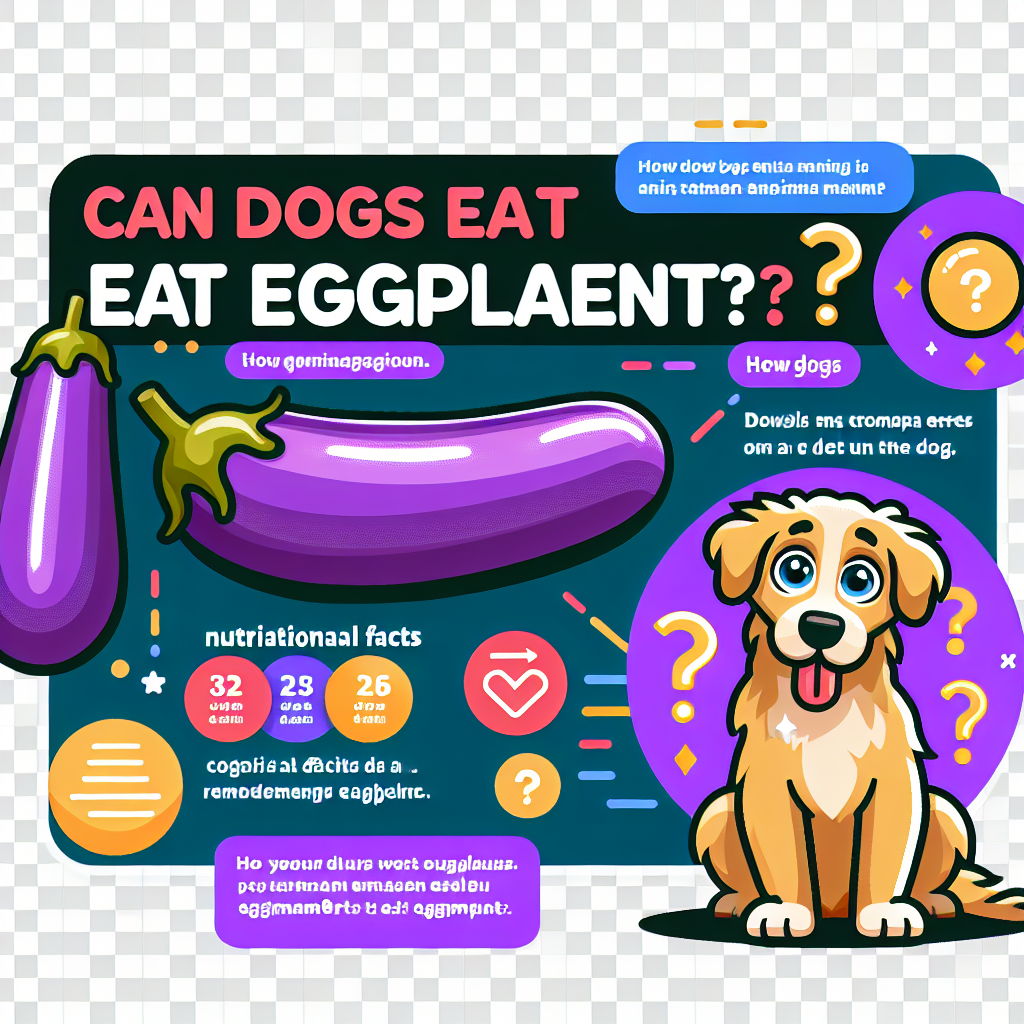Can Dogs Eat Eggplant? A Guide for Pet Owners
As pet owners, we often seek to provide our dogs with a healthy and balanced diet, filled with nutritious and safe foods. While many fruits and vegetables can be beneficial additions to a dog’s diet, it’s essential to know which foods are safe and which could pose risks. One vegetable that raises questions among dog owners is eggplant. So, can dogs eat eggplant? Let’s delve into the details.
Understanding Eggplant
Eggplant, also known as aubergine in some countries, belongs to the Solanaceae family, which also includes tomatoes, peppers, and potatoes. This vegetable boasts a rich purple skin and a spongy texture, and it is commonly used in various culinary dishes worldwide. From stir-fries to casseroles, eggplant can be a great addition to human diets, but how does it fare when it comes to our canine companions?
Nutritional Content of Eggplant
Eggplant is low in calories and contains several beneficial nutrients, including:
- Fiber: Essential for digestive health, fiber can help regulate a dog’s bowel movements.
- Vitamins: Eggplant contains vitamins A, C, and K, which can contribute to overall health.
- Minerals: It provides essential minerals like potassium and magnesium.
Is Eggplant Safe for Dogs?
Overall, dog owners can safely feed eggplant to their furry friends in moderation, but there are important considerations:
-
Solanine Content: Eggplant is part of the nightshade family, which means it contains solanine, a natural toxin that can be harmful in large quantities. However, the levels in eggplant are generally low compared to other nightshades like green potatoes or unripe tomatoes. Most dogs will be fine with small amounts of cooked eggplant.
-
Preparation Matters: Raw eggplant can be difficult for dogs to digest and may lead to gastrointestinal upset. Always cook the eggplant before serving it to your dog. Avoid any seasoning, especially garlic and onions, which are toxic to dogs.
-
Allergies and Sensitivities: As with any new food, introducing eggplant should be done gradually. Monitor your dog for any signs of allergies or sensitivities, such as vomiting, diarrhea, or excessive itching after consuming eggplant.
- Portion Control: Moderation is key. Eggplant should only be a small part of your dog’s overall diet and should not replace their primary source of nutrition. A few small pieces as a treat or mixed into their food is adequate.
Potential Benefits of Eggplant for Dogs
While eggplant is not a necessity in a dog’s diet, it can offer some health benefits when given appropriately:
- High in Antioxidants: The skin of eggplant contains antioxidants that can help fight free radicals in the body, promoting overall health.
- Weight Control: Due to its low-calorie content, eggplant can be a suitable choice for dogs needing to lose weight or maintain a healthy weight.
Conclusion
In conclusion, yes, dogs can eat eggplant, provided it is cooked, served in moderation, and introduced gradually. Always consult your veterinarian before adding any new food to your dog’s diet, especially if your pet has pre-existing health conditions or dietary restrictions. By ensuring that you prepare eggplant safely and monitor your dog’s reaction, you can confidently share this nutrient-rich vegetable as a part of their meals or as an occasional treat. Enjoy exploring new dietary options for your furry friend!



